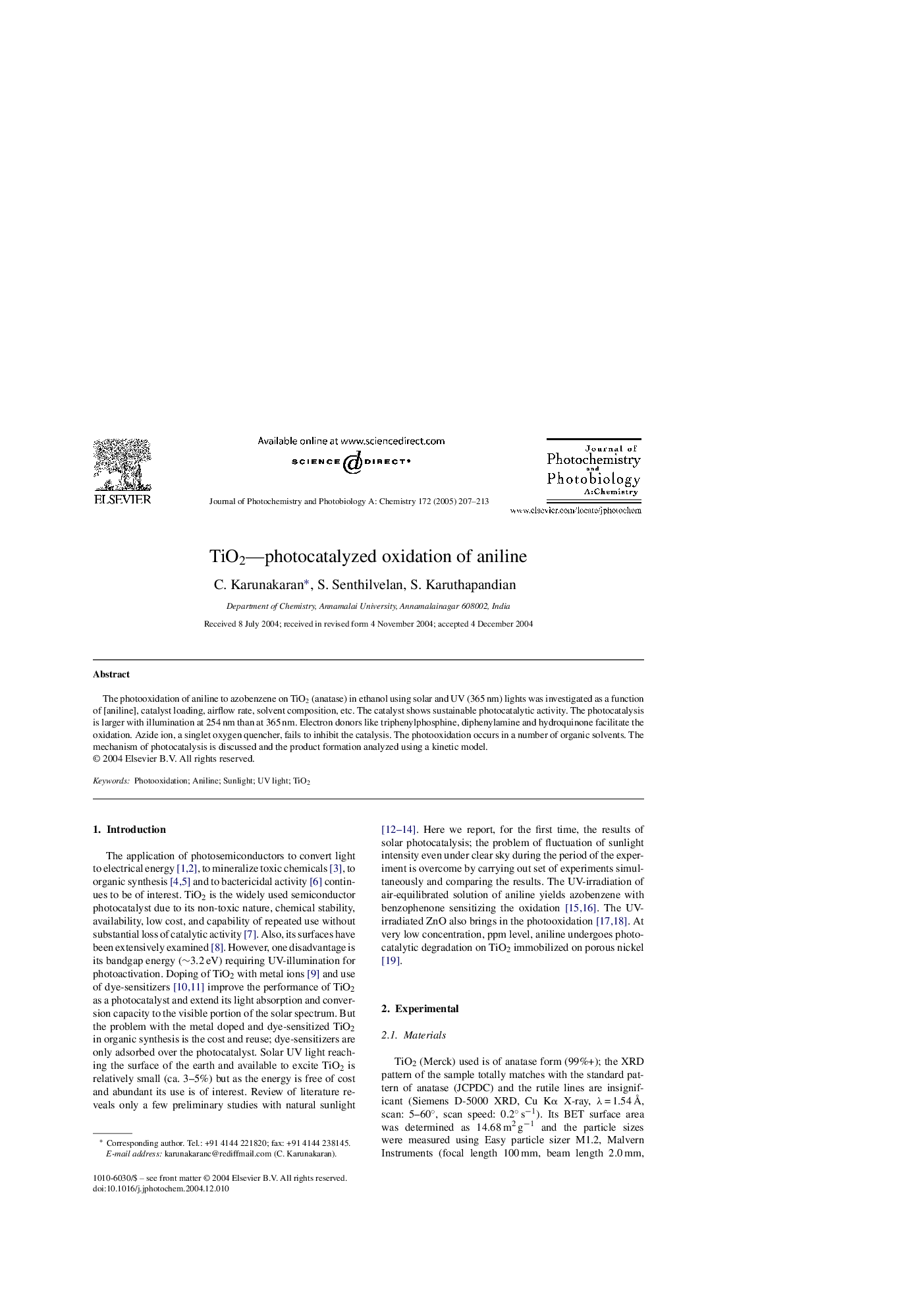| Article ID | Journal | Published Year | Pages | File Type |
|---|---|---|---|---|
| 9605634 | Journal of Photochemistry and Photobiology A: Chemistry | 2005 | 7 Pages |
Abstract
The photooxidation of aniline to azobenzene on TiO2 (anatase) in ethanol using solar and UV (365Â nm) lights was investigated as a function of [aniline], catalyst loading, airflow rate, solvent composition, etc. The catalyst shows sustainable photocatalytic activity. The photocatalysis is larger with illumination at 254Â nm than at 365Â nm. Electron donors like triphenylphosphine, diphenylamine and hydroquinone facilitate the oxidation. Azide ion, a singlet oxygen quencher, fails to inhibit the catalysis. The photooxidation occurs in a number of organic solvents. The mechanism of photocatalysis is discussed and the product formation analyzed using a kinetic model.
Related Topics
Physical Sciences and Engineering
Chemical Engineering
Bioengineering
Authors
C. Karunakaran, S. Senthilvelan, S. Karuthapandian,
